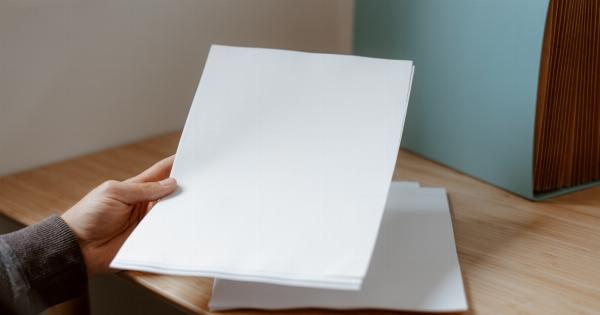Sleep is an essential part of our well-being. It is the time when our body gets to rest and recharge, preparing us for the challenges of the next day. However, not everyone can sleep easily at night.
Insomnia, a sleep disorder that makes it hard for people to fall asleep, affects millions of people worldwide. Some of its causes include stress, anxiety, depression, medication, and poor sleep hygiene. If you have trouble sleeping at night, you are not alone. In this article, we will explore a simple yet effective method for better rest.
What is the Sleep Hygiene?
Sleep hygiene refers to a series of habits and practices that promote healthy sleep. It involves creating an environment that is conducive to sleep, establishing a regular sleep-wake cycle, and avoiding behaviors that can interfere with sleep.
Poor sleep hygiene can lead to difficulty sleeping, daytime sleepiness, and other health problems such as obesity, diabetes, and hypertension. Here are ten tips for good sleep hygiene:.
1. Set a Regular Sleep Schedule
The human body thrives on routine, and the same goes for our sleep-wake cycle. Going to bed and waking up at the same time every day can help regulate our circadian rhythm, an internal clock that governs our sleep patterns.
Try to stick to your schedule even on weekends or holidays.
2. Create a Sleep-Conducive Environment
Your bedroom should be a sanctuary for sleep. Make sure it is dark, quiet, and cool (around 60 to 67 degrees Fahrenheit). Invest in a comfortable mattress and pillows and use cozy blankets and linens.
Stay away from electronic devices that emit blue light, such as laptops, smartphones, tablets, and TVs, as it can interfere with your sleep cycle.
3. Avoid Naps
Napping during the day can mess up your sleep schedule, especially if you take long and irregular naps.
If you need to rest during the day, limit it to a short power nap (around 20 to 30 minutes) and make sure it is at least six hours before your bedtime.
4. Limit Caffeine and Alcohol Intake
Caffeine is a stimulant that can keep you awake, increase your heart rate, and make you anxious. Avoid drinking coffee, tea, or other caffeinated beverages at least six hours before bedtime.
Alcohol, on the other hand, is a depressant that can make you drowsy but can also disrupt your sleep cycle and cause sleep apnea and snoring. If you drink alcohol, do it in moderation and avoid it before bedtime.
5. Establish a Relaxation Routine
A relaxing routine can help your body unwind and signal its time to sleep. It can be anything that relaxes you, such as taking a warm bath, reading a book, meditating, or listening to relaxing music.
Make sure to do it every night, so your body associates it with sleep.
6. Exercise Regularly
Exercise is beneficial for your overall health, including your sleep. It can reduce stress, anxiety, and depression, boost your energy, and improve your mood. However, avoid exercising two to three hours before bedtime, as it can keep you awake.
7. Eat a Balanced Diet
Your diet can affect your sleep quality. Avoid eating heavy meals, spicy foods, and large amounts of liquids before bedtime, as they can cause heartburn, indigestion, and frequent urination.
Instead, eat a balanced diet that includes complex carbohydrates, protein, and healthy fats, such as whole grains, fruits, vegetables, nuts, and lean meats.
8. Manage Stress and Anxiety
Stress and anxiety are common culprits of insomnia. To manage them, you can try relaxation techniques, such as deep breathing, progressive muscle relaxation, visualization, or cognitive-behavioral therapy.
You can also seek professional help if your stress and anxiety persist.
9. Avoid Smoking
Smoking can harm your health in many ways, including your sleep. Nicotine is a stimulant that can keep you awake and make you feel restless.
If you smoke, avoid doing it before bedtime, as it can also lead to withdrawal symptoms in the middle of the night.
10. Try a Natural Sleep Aid
If you have trouble sleeping even after following these tips, you can try a natural sleep aid. Some popular herbal remedies include valerian root, chamomile, lavender, passionflower, and melatonin.
However, make sure to consult your doctor before taking any natural sleep aid or supplement, especially if you are pregnant, breastfeeding, or taking medication.
The Bottom Line
Sleep is essential for our health and well-being, but not everyone can sleep easily at night. Insomnia can affect millions of people worldwide, and its causes are diverse. However, you can improve your sleep quality by practicing good sleep hygiene.
Setting a regular sleep schedule, creating a sleep-conducive environment, avoiding naps, limiting caffeine and alcohol intake, establishing a relaxation routine, exercising regularly, eating a balanced diet, managing stress and anxiety, avoiding smoking, and trying a natural sleep aid can help you get the rest you need. Remember to talk to your doctor if your insomnia persists or affects your daily life.



























